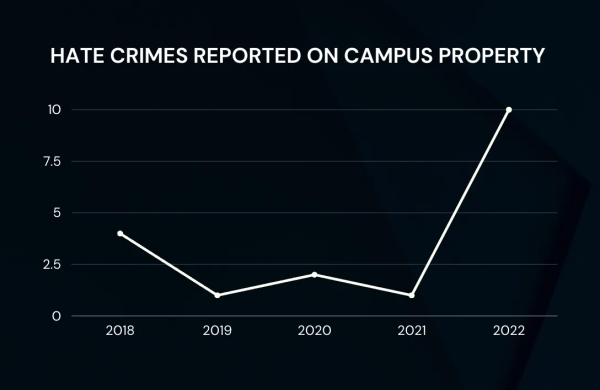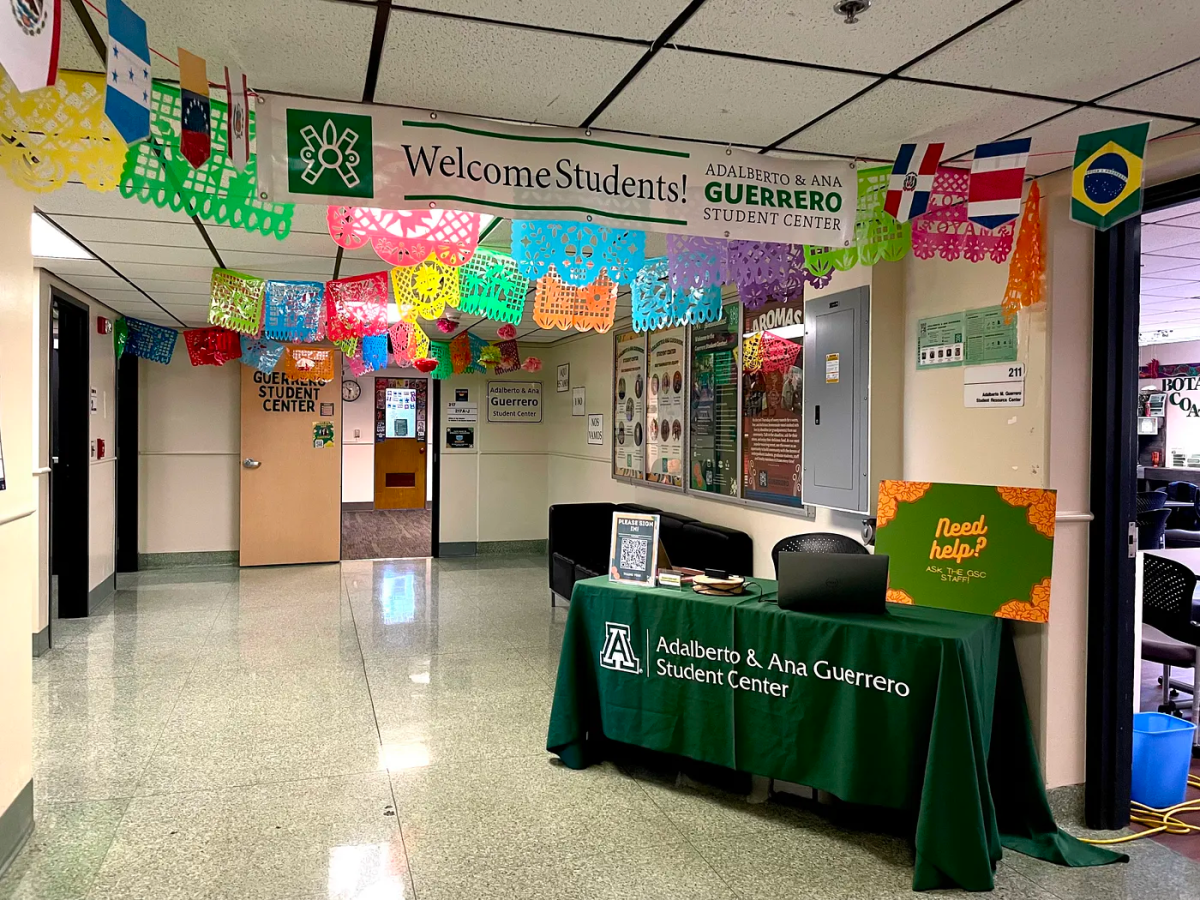The University of Arizona saw a dramatic increase in hate crimes reported on campus in 2022, according to its Annual Security and Fire Safety Report published Sept. 30. There were 10 hate crimes reported in 2022, which exceeds even the recent pre-pandemic numbers.
Arizona State University reported no hate crimes in 2022.
The UA’s report defined a hate crime as a “criminal offense committed that manifests evidence that the victim was intentionally selected because of the perpetrator’s bias against the victim.”
“Before an incident can be classified as a hate crime, sufficient objective facts must be present to lead a reasonable and prudent person to conclude that the offender’s actions were motivated, in whole or in part, by bias,” the report said.

Director of Asian Pacific American Student Affairs at the UA Kenny Importante anticipated a greater number of hate crimes and noted some of this discrepancy might be credited to how incidents are reported and how reports are managed.
“I think a lot of that has to do with what is really being reported versus what students have experienced,” Importante said. “Even when they report, it’s not handled perhaps the way we would think about it.”
Importante recalled an incident from 2019, in which white students who assaulted a Black student were initially only punished with a social justice diversion training program, rather than charges. Many were angered by this at the time and the event prompted students to protest campus police conduct. The two assailants later faced charges, but they were ultimately dismissed.
Cultural resource centers felt the 2022 surge reflected in their work.
“The increase in hate crimes definitely impacts the programming we do,” said Jamaica DelMar, interim director of African American Student Affairs at the UA. “Our role is to advocate for our students and that includes their safety.”
According to campus cultural center leaders, increased communication between students and administrators has the potential to spark great institutional growth for the UA. Importante said the centers could expand their reach if provided with greater resources.
“At this point, we are asking for more resources to be able to support the students that we work with,” Importante said. “Administration hopefully realizes the significance of the work that we do.”
These campus leaders believe the inclusion of cultural resources centers is an important aspect that may be missing from the university’s new approach to safety in the wake of professor Thomas Meixner’s death in October 2022. DelMar feels that everyone has more to learn.
“Hate crimes on campus are a hyper local, often traumatic opportunity to educate folks,” DelMar said. “Interestingly, sometimes the people who need to be educated when hate crimes happen are the people with the most power on campus.”
Follow the Daily Wildcat on Instagram and Twitter/X















